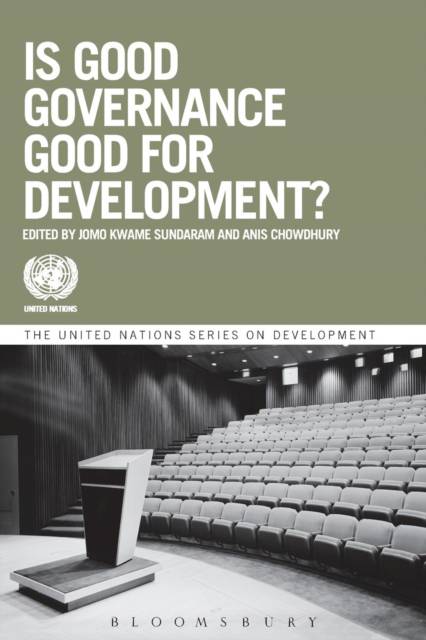
- Afhalen na 1 uur in een winkel met voorraad
- Gratis thuislevering in België vanaf € 30
- Ruim aanbod met 7 miljoen producten
- Afhalen na 1 uur in een winkel met voorraad
- Gratis thuislevering in België vanaf € 30
- Ruim aanbod met 7 miljoen producten
Zoeken
Omschrijving
While good governance is a worthy goal, this book argues that it is not a prerequisite for economic growth or development. The book exposes the methodological shortcomings of the commonly-used governance indicators developed within the World Bank. The authors argue that donors should not impose onerous good governance conditions, expecting the developing world to simulate now-developed countries. They contend that most poor countries lack the administrative and financial capacity to achieve these reforms or institutions - so donor conditionality often becomes a recipe for failure.
In place of grand government reforms aimed at enhancing market efficiency, the book's position is that the reform agenda should target strategic bottlenecks for development and enhance the state's capacity to deal with these disruptions. Bringing together contributions from leading political scientists, political economists and development practitioners, this is the first book to provide a systematic critical perspective on received notions of good governance.
In place of grand government reforms aimed at enhancing market efficiency, the book's position is that the reform agenda should target strategic bottlenecks for development and enhance the state's capacity to deal with these disruptions. Bringing together contributions from leading political scientists, political economists and development practitioners, this is the first book to provide a systematic critical perspective on received notions of good governance.
Specificaties
Betrokkenen
- Auteur(s):
- Uitgeverij:
Inhoud
- Aantal bladzijden:
- 208
- Taal:
- Engels
- Reeks:
Eigenschappen
- Productcode (EAN):
- 9781780932224
- Verschijningsdatum:
- 11/03/2013
- Uitvoering:
- Paperback
- Formaat:
- Trade paperback (VS)
- Afmetingen:
- 155 mm x 231 mm
- Gewicht:
- 272 g

Alleen bij Standaard Boekhandel
+ 179 punten op je klantenkaart van Standaard Boekhandel
Beoordelingen
We publiceren alleen reviews die voldoen aan de voorwaarden voor reviews. Bekijk onze voorwaarden voor reviews.







